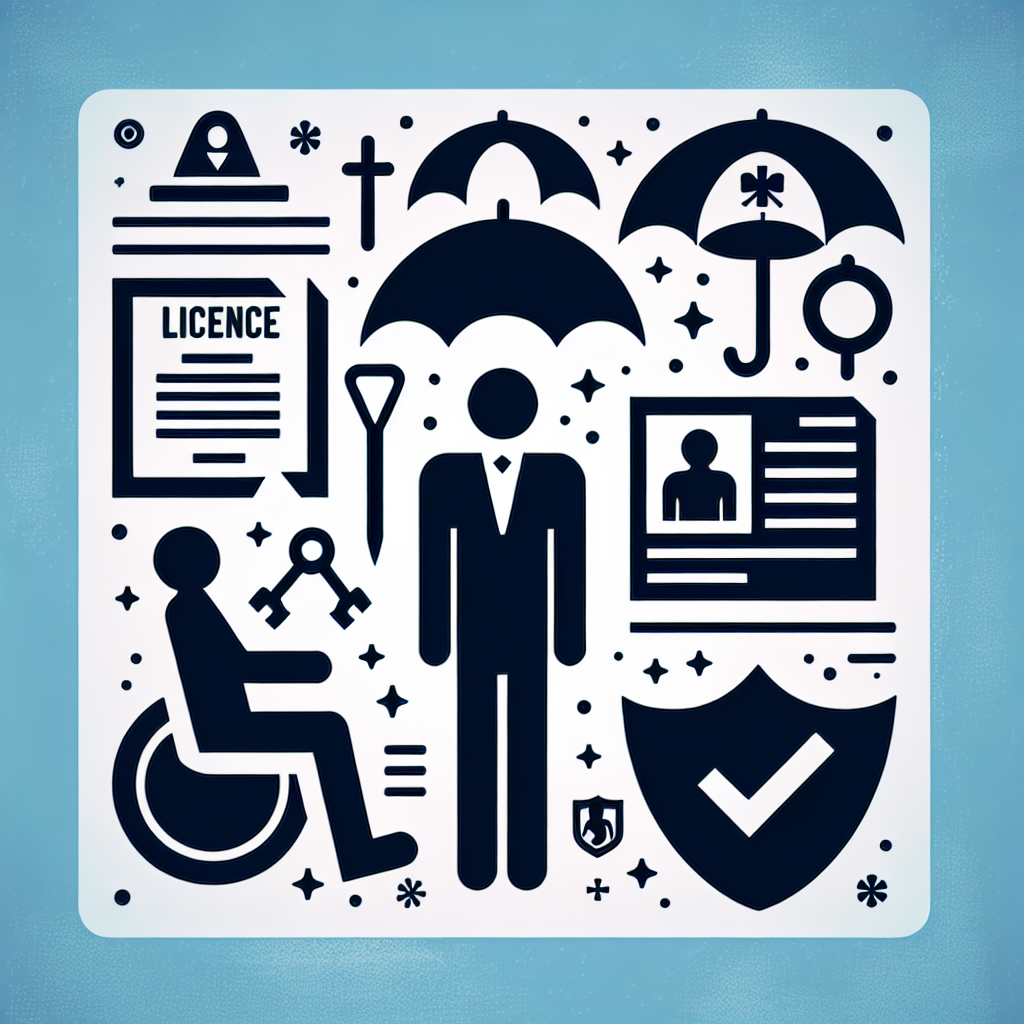Filed under Disability Insurance on
Understanding Licenses for Long Term Disability Insurance

In today's fast-paced world, understanding the intricacies of insurance can be a daunting task. Among these complexities lies the topic of long term disability insurance licenses, a crucial element for both insurance professionals and policyholders. Navigating the realm of licensing for long term disability insurance can determine the level of coverage and protection an individual can access when faced with a disability that impairs their ability to work. This article delves into the significance of long term disability insurance licenses, offering a comprehensive guide for readers seeking clarity in this essential aspect of financial planning.
What is Long Term Disability Insurance?
Understanding long term disability insurance begins with grasping its fundamental purpose. Designed to replace a portion of an individual's income when they are unable to work due to a prolonged illness or injury, long term disability insurance is a safety net that helps maintain financial stability during challenging times. Unlike short term disability insurance, which covers temporary disabilities for a brief period, long term plans typically commence after a few weeks or months and may extend for years or even until retirement age.
The Importance of Licensing in Long Term Disability Insurance
Licensing is an often-overlooked yet vital component of long term disability insurance. It serves as a verification tool, ensuring that insurance professionals possess the requisite knowledge and skills to provide accurate information and trustworthy service. Moreover, having a licensed provider enhances consumer confidence, as it signifies a level of professionalism and adherence to industry standards.
Regulatory Oversight and Compliance
Every state has specific regulations concerning long term disability insurance licenses. Regulatory bodies, such as state insurance departments, are tasked with overseeing the licensing process, ensuring that all practitioners meet the legal and educational prerequisites. This rigorous oversight protects consumers from misinformation and fraud by enforcing compliance with established rules and ethical practices.
Licensing Requirements and Eligibility
To better comprehend long term disability insurance licenses, one must familiarize themselves with the general requirements and eligibility criteria. Although these may vary by state, there are commonalities that aid in a standardized licensing framework.
Educational and Professional Credentials
Prospective insurance professionals typically begin their journey by obtaining a high school diploma or equivalent. Following this, many pursue postsecondary education in finance, business, or related fields. However, the cornerstone of licensing usually involves specialized insurance courses that cover critical topics such as policy structures, ethical practices, and industry regulations. Successfully passing a state-administered examination is often necessary to demonstrate a comprehensive understanding of these concepts.
Continuing Education
To maintain a long term disability insurance license, professionals must engage in ongoing education. This requirement ensures they remain informed about evolving industry trends, regulatory changes, and advancements in insurance products. Regularly updating their knowledge allows them to continue providing high-quality service to their clients.
Key Considerations for Policyholders
- Verify Licenses: Policyholders should always verify the licensing status of their insurance provider to ensure they are working with a credentialed professional.
- Understand Terms and Conditions: Grasping the specifics of a long term disability insurance policy is crucial. Policyholders should ask questions to understand terms, conditions, and any exclusions or limitations.
- Assess Financial Stability: Evaluating the insurer's financial stability is vital. A company with a strong financial foundation is more likely to honor claims and provide reliable coverage.
Impact of Licensing on the Insurance Market
Consumer Trust and Confidence
Proper licensing boosts consumer confidence by signaling professionalism and competency. Consumers are more likely to engage with professionals who have verifiable credentials, fostering a trustworthy relationship.
Market Competition
Licensing also plays a role in shaping the competitive landscape of the insurance industry. It sets a standard that all professionals must meet, thereby leveling the playing field and encouraging high-quality service standards. A competitive market not only benefits consumers by broadening their choices but also motivates insurers to innovate and improve their offerings.
Technological Advancements and Future Trends
The rapidly evolving insurance industry is witnessing significant technological advancements, influencing both policy offerings and licensing requirements. Emerging technologies, such as artificial intelligence and big data analytics, are reshaping the way insurance products are designed and marketed, presenting new challenges and opportunities for professionals.
The Role of Digital Tools in Licensing
Digital platforms are increasingly being utilized to streamline the licensing process. Online courses and virtual examinations have made it more accessible for individuals to obtain the necessary credentials, thereby expanding the pool of qualified insurance professionals.
Adapting to Evolving Consumer Needs
As consumer needs evolve, so too must the regulatory frameworks governing long term disability insurance licenses. Adapting to these changes involves not only embracing digital advancements but also reassessing the educational criteria to ensure they align with contemporary market demands.
Expert Opinions on Licensing and Insurance
Industry experts consistently emphasize the importance of maintaining stringent licensing requirements to uphold the integrity of the insurance market. According to a report by the National Association of Insurance Commissioners (NAIC), a well-regulated licensing system is critical in fostering a stable and trustworthy insurance environment.
Furthermore, an article in the Journal of Insurance Regulation highlights how ongoing compliance and professional development are essential in equipping insurance professionals with the necessary tools to navigate complex policy structures and cater to diverse client needs.
Conclusion
Understanding long term disability insurance licenses is pivotal for both industry professionals and consumers. For professionals, it is a matter of legal compliance and career advancement, while for consumers, it represents a measure of security and trust. Licensing not only safeguards the interests of all parties involved but also contributes to a robust and reliable insurance system. As the landscape continues to evolve with technological and regulatory advancements, staying informed and adaptable is key to succeeding in the world of long term disability insurance.



